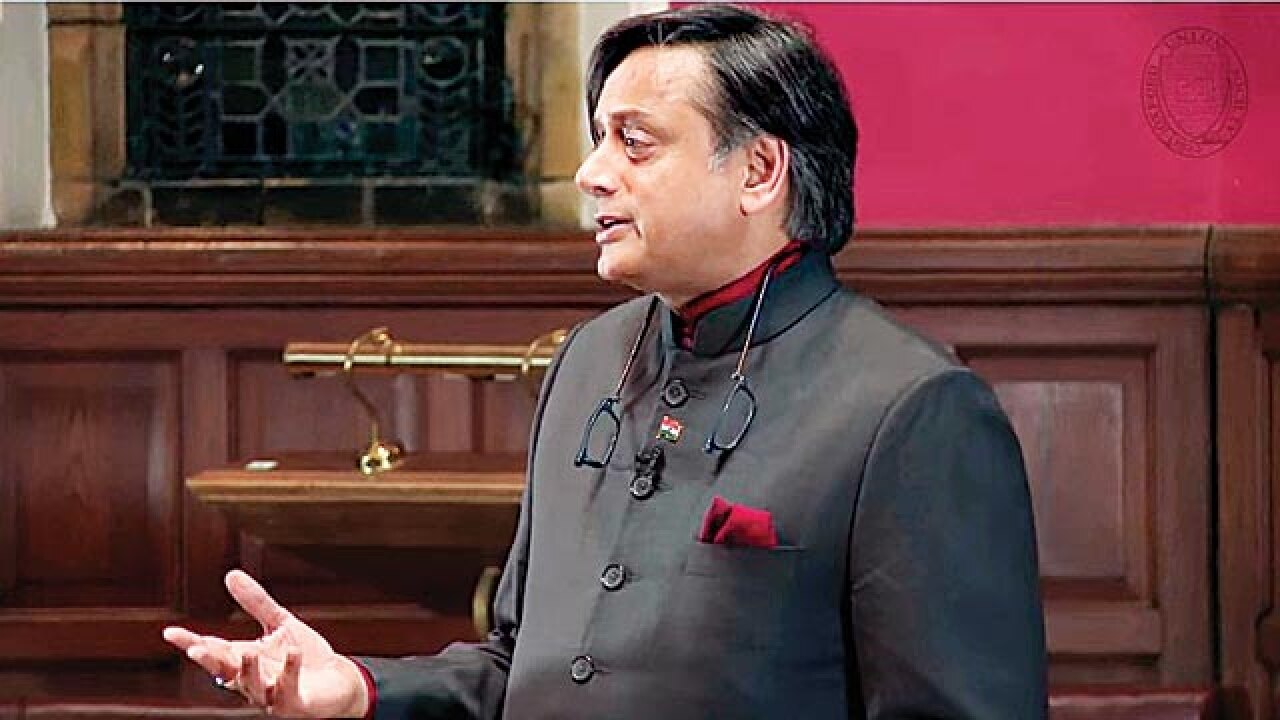
On July 14 last year, writer-politician Shashi Tharoor tweeted a video link to an Oxford Union debate speech he’d delivered in supporting the motion “Britain owes reparation to her former colonies”. The speech set off a veritable frenzy, being re-tweeted or shared thousands of times on social media. At a time when his political stock in the Congress was at an all-time low, the video’s popularity helped Tharoor reassert his credentials as a scholar and public intellectual in the Nehruvian mould. So it’s no surprise that Tharoor, despite closing out the debate in masterly fashion, chose to spin it off into a new book, An Era of Darkness.
Excerpts from an interview:
I had warned the publishers that in this era of short attention spans there’s a big risk—people who’ve watched the speech may not read it. But there’s much more substance in a 300-page book than in a 15-minute speech. All the arguments against the empire can be found in one place, updated in terms of modern scholarship, and it makes an effort to refute the rose-tinted myth-making in favour of the Empire that’s come out in recent years.
When some leaders speak of 1,200 years of foreign rule, they include the rule by sultans and Mughals. But they are wrong—those guys stayed and assimilated. Even if they looted, they spent the loot here. What the British looted, they spirited away the wealth to England.
The book attacks the argument that the British gave us political unity. We had geographic unity thanks to the Himalayas and the seas. Efforts towards political unity date back to the Mauryan empire. Even the cultural unity is evident from Adi Shankara’s march from Kerala and establishing mutts in the four corners of the land. The sense that India existed in the world’s imagination was always there and at various times, various political attempts were made to forge that unity. The British merely did what Ashoka, the Guptas, Mughals and Marathas tried. The Mughals, of course, had the biggest success. Given this background, some other political impulse would have emerged. Secondly, when the British came, the Marathas had already spread over much of Northern and Central India.
Landlessness was a British creation. They established absolutely rapacious taxation—45 percent or sometimes more. Before that, there was taxation, but didn’t exceed 15 per cent of produce. Taxes were often waived because of drought, festival or a daughter’s wedding. Their first 100 years of rule was absolutely nightmarish in terms of taxation. The Permanent Settlement established rent collectors as permanent owners of the land, while those who tilled the land lost their rights. There were all sorts of economic consequences of British rule that contributed to Indian poverty.
Colonialism laid a terrific platform for them. In the late 18th century India accounted for 23 percent of world GDP, while Britain, France and Germany together accounted for less than one per cent. By the time they left India, Britain alone accounted for 10 per cent of world GDP, while India was reduced to almost nothing. Since then, they’ve done a decent job. There was a period in the 1970s when they seemed to be in danger of becoming the world’s first under-developing country, but they’ve recovered. I wouldn’t want to knock them over, but also wouldn’t want them to forget what gave them the initial platform for this takeoff.